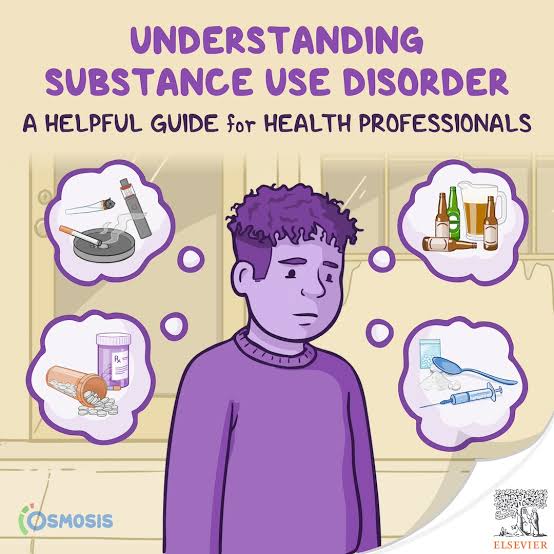
Substance use disorders (SUDs) can have a profound impact on an individual’s overall health, affecting various aspects of physical, mental, and social well-being. Here’s an overview of how SUDs can influence health:
Physical Health
1. Chronic Diseases: Substance abuse can lead to the development of chronic illnesses such as liver disease (from alcohol), respiratory issues (from smoking), and cardiovascular problems.
2. Infections: Intravenous drug use increases the risk of infectious diseases such as HIV and hepatitis.
3. Nutritional Deficiencies: Many substances can lead to poor diet and nutrition, contributing to weight loss or obesity and related health issues.
4. Acute Health Problems: Overdoses can result in immediate, life-threatening conditions requiring emergency medical attention.
Mental Health
1. Co-Occurring Disorders: Many individuals with SUDs also experience mental health disorders, such as depression, anxiety, or PTSD.
2. Cognitive Impairment: Long-term substance use can impair cognitive functions such as memory, decision-making, and emotional regulation.
3. Increased Risk of Suicide: Individuals with substance use disorders are at greater risk for suicidal thoughts and behaviors.
Social Well-Being
1. Relationships: SUDs can strain relationships with family, friends, and colleagues, leading to social isolation and conflict.
2. Work and School: Substance abuse can impact attendance, performance, and productivity in both work and educational settings.
3. Legal Issues: Engagement in illegal activities to support substance use can result in legal consequences.
Treatment and Recovery
1. Comprehensive Care: Effective treatment often requires an integrated approach that addresses both substance use and concurrent mental health issues.
2. Support Systems: Community support groups, therapy, and family involvement can play crucial roles in recovery.
3. Ongoing Management: Recovery is often a long-term process that involves continued support and, in some cases, medication-assisted treatments.
# Conclusion
Understanding the multifaceted impact of substance use disorders is essential for effective prevention and treatment strategies. Raising awareness and promoting education around these issues can lead to healthier communities and better support for affected individuals. If you or someone you know is struggling with substance use, seeking professional help is a critical step towards recovery.






